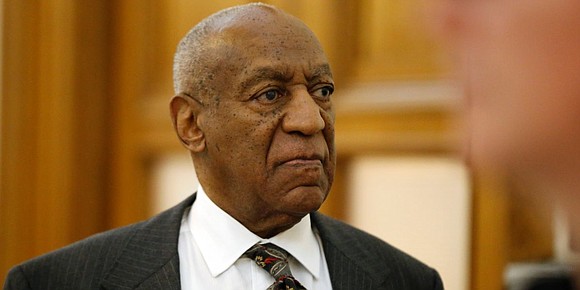Judge rules Bill Cosby's Quaaludes admission is fair game, again
CNN/Stylemagazine.com Newswire | 4/17/2018, 11:39 a.m.
By Eliott C. McLaughlin and Aaron Cooper, CNN
(CNN) -- The judge in Bill Cosby's indecent assault trial ruled Tuesday a jury can consider as evidence the comedian's 2005 admission that he procured Quaaludes for women he wanted to bed.
Accuser Andrea Constand is one of dozens of women who have accused the former TV star of drugging and sexually assaulting them, an allegation Cosby denies.
Judge Steven O'Neill's decision came amid a more than hourlong hearing, during which the jury was not present. The hearing dealt with attorney-client privilege, Fifth Amendment concerns and Cosby's defense team's plans to call one of Constand's civil attorneys to the stand, as well as a toxicologist who will dispute her account of how the drugs affected her.
Who's who in the Cosby trial?
The former Temple University employee alleges that she considered Cosby a mentor and he gained her trust before assaulting her in 2004. Cosby, 80, has said their sex was consensual, and has pleaded not guilty to three charges of aggravated indecent assault. His first trial ended in a mistrial after a Pennsylvania jury couldn't come to a unanimous decision.
This will be the second time O'Neill has allowed Cosby's admission -- provided the year after the alleged assault, as Constand pursued a civil suit against him -- into evidence. O'Neill made similar ruling in April 2017 during Cosby's first trial.
During the 2005 deposition, Constand attorney Dolores Troiani asked Cosby pointedly, "When you got the Quaaludes, was it in your mind that you were going to use these Quaaludes for young women that you wanted to have sex with?"
"Yes," Cosby replied.
"Did you ever give any of those young women the Quaaludes without their knowledge?" Troiani followed up.
Cosby's attorney objected and told him not to answer the question.
Defense says Constand a 'con artist'
The trial was expected to continue Tuesday with law enforcement officials taking the stand. Monday, Constand testified that she agreed to a $3.4 million civil settlement with Cosby -- which included no admission of wrongdoing -- simply because she "glad it was over."
"(I signed it) because it was a very painstaking process for me and my family. It tore my family apart and we just wanted it over," she said.
Cosby defense attorney Tom Mesereau has attempted to poke holes in her story, arguing that Constand was a "con artist" who obsessed over Cosby's money and fame.
"Do you agree that on many subjects you have been inconsistent with what you have told police?" Mesereau asked her at one point.
"I believe I have been consistent, but mistaken in some areas," Constand responded.
What we learned from Constand's testimony
Several other women told jurors last week they believe Cosby drugged and molested them. Their stories aimed to bolster prosecutors' argument that Cosby's alleged attack on Constand wasn't a singular incident but part of a pattern of misbehavior.
Constand is Cosby's chief accuser in a case that lacks virtually any forensic evidence. Prosecutors in his retrial were allowed to seek testimony from as many as five other women who claim Cosby also drugged and assaulted them.
Janice Dickinson, Heidi Thomas, Chelan Lasha, Janice Baker-Kinney and Lise-Lotte Lublin testified last week that Cosby incapacitated them and then assaulted them in separate incidents.
Dickinson: I wanted to punch him
Constand testified Friday that she drank wine and took three blue pills at Cosby's urging in January 2004, then lost consciousness and, sometime later, was "jolted awake" to find the entertainer sexually assaulting her.
"I wanted it to stop. I couldn't say anything. I was trying to get my hands to move, my legs to move and the message just wasn't getting there. I was weak, I was limp and I couldn't fight him off."




